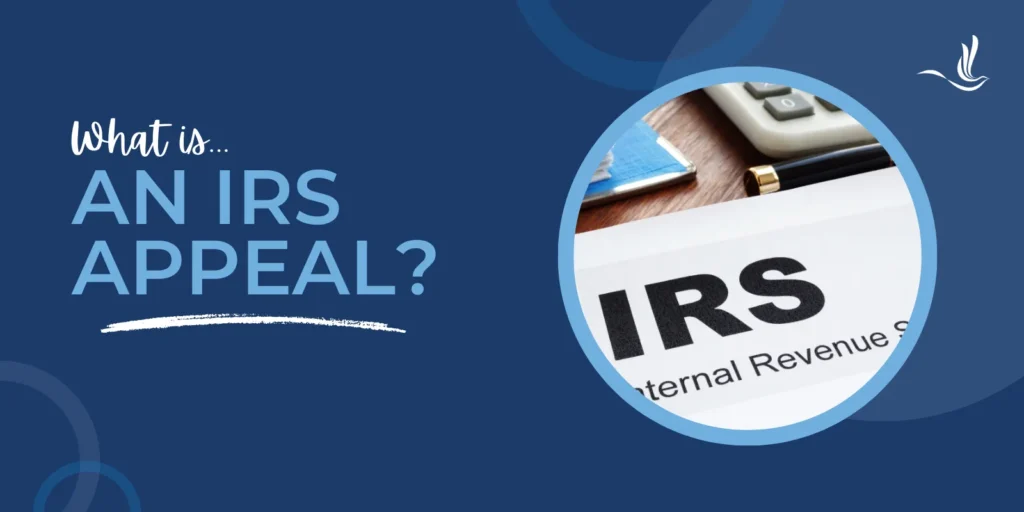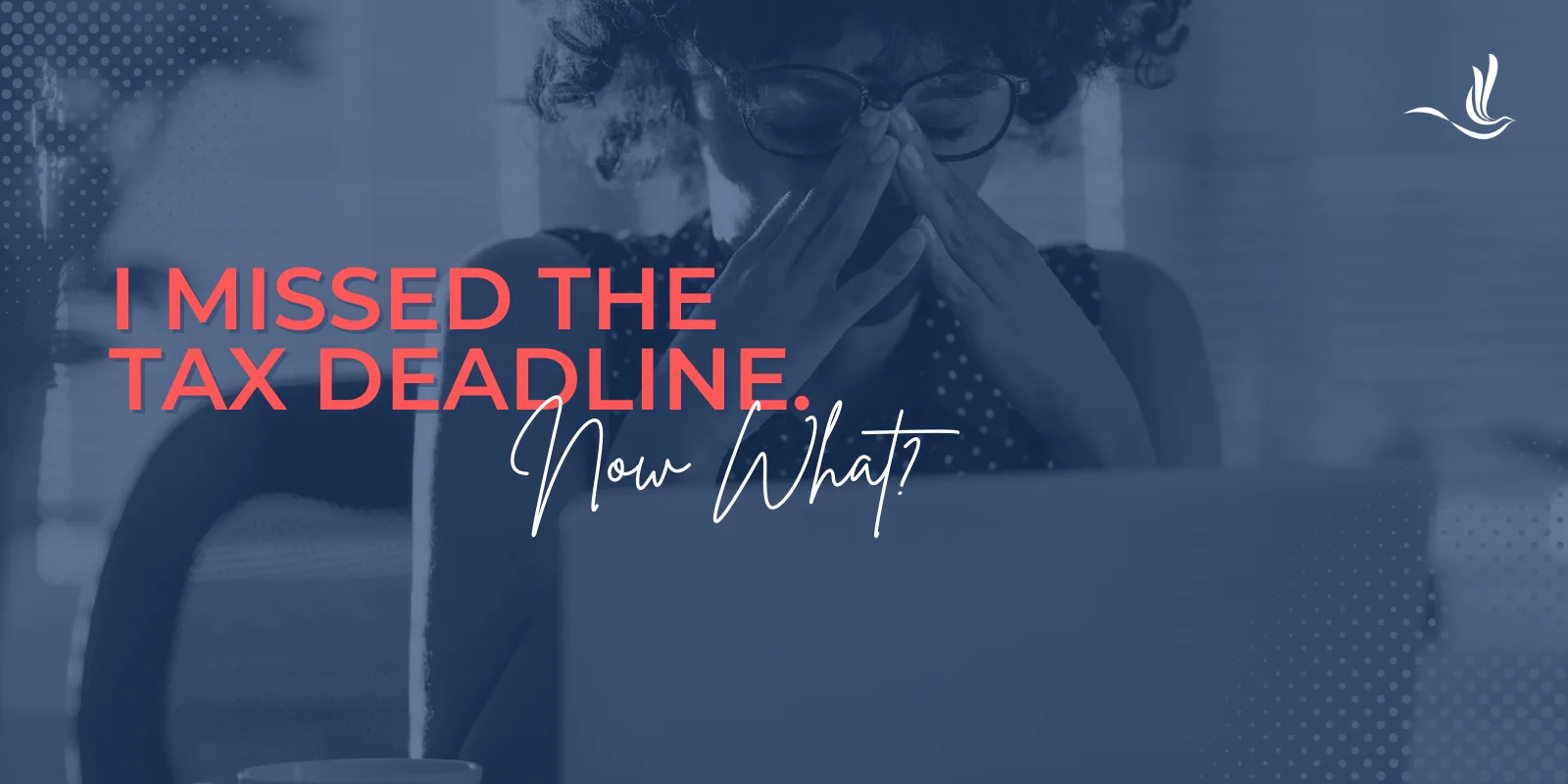Dealing with the IRS can be tough, and disputes with them can add significant stress to taxpayers. However, the IRS Appeals process offers a structured pathway for resolving disagreements without taking it to court. Here are the essentials of IRS Appeals, including its purpose, the steps involved, and how taxpayers can effectively navigate this process.
What is an IRS Appeal?
The IRS Appeals process is an administrative review procedure that allows taxpayers to challenge various IRS decisions. It functions independently from the IRS offices that initially make tax determinations, ensuring an impartial review. The Office of Appeals aims to resolve disputes fairly and efficiently. The goal is to avoid costly and time-consuming court proceedings.
Common Issues Addressed by IRS Appeals
Taxpayers may seek an appeal for a range of issues, including but not limited to:
- Audit findings: Disagreements over additional tax assessments following an IRS audit.
- Penalties: Disputes over penalties imposed for late filing, underpayment, or non-compliance.
- Liens and levies: Challenges to IRS actions to collect unpaid taxes.
- Innocent spouse relief: Requests for relief from tax liability for spouses unaware of tax understatements by their partners.
The IRS Appeal Process: Step-by-Step
Initial Notification
The process typically begins when you receive a letter or notice from the IRS, such as an audit determination or penalty notice. The first step is to carefully review the communication. This document typically outlines the reasons for the IRS decision and the amount in dispute.
For example, let’s say Jon receives a letter from the IRS stating that after an audit, they have determined he owes an additional $10,000 in taxes due to unreported income. Jon believes this determination is incorrect.
Requesting an Appeal
To initiate an appeal, you must file a formal written protest. For small cases (disputes under $25,000), a simpler request process, known as a “small case request,” is available. Larger cases require a detailed protest letter, which should include:
- A statement of intent to appeal.
- The taxpayer’s personal information.
- A copy of the notice or letter being appealed.
- A detailed explanation of the disputed issues and relevant facts.
- A summary of the taxpayer’s position and the law or authority supporting it.
Going back to our example, let’s say Jon writes a detailed protest letter explaining that the unreported income was a reimbursement from his employer for business expenses, not taxable income. He includes receipts and a letter from his employer confirming this.
Preparing for the Conference
After submitting the protest, you will receive a response from the Appeals Office, often including a date for an appeals conference. This conference is an informal meeting, usually conducted by phone or video call, where you or a representative presents your case. Preparation is crucial, and you should organize all relevant documents and evidence to support your arguments.
For example, before the conference, Jon organizes all his receipts, employer letters, and a detailed explanation of his business expenses to present a clear case.
The Appeals Conference
During the conference, an Appeals Officer reviews the case, asks questions, and considers your position. The goal is to reach a mutually acceptable resolution. Remember, you can represent yourself or choose to be represented by a tax professional, such as an attorney, certified public accountant (CPA), or enrolled agent.
For example, during the conference, Jon explains his situation, provides the necessary documentation, and answers the Appeals Officer’s questions. He might also have his CPA present to help explain the tax laws that support his position.
Resolution
If an agreement is reached, the Appeals Officer will prepare a settlement agreement. Once both parties sign, the case is closed. If no agreement is reached, you have the right to pursue the matter further in Tax Court.
Going back to our example, let’s say the Appeals Officer reviews Jon’s documentation and agrees that the reimbursement should not be considered taxable income. They would reach a settlement, and Jon would not owe the additional $10,000.
Additional Examples
Penalty Abatement Appeal
Let’s say you received a penalty for late filing of your tax return, amounting to a $1,200 tax bill. You believe the penalty is unwarranted because you filed for an extension and have proof of timely submission. You prepare a protest letter with your extension request form and postal receipt showing the filing date. During your appeals conference, you present your evidence, and the Appeals Officer agrees to abate the penalty.
Innocent Spouse Relief Appeal
Let’s say you received a notice stating you owed $15,000 in taxes due to your ex-spouse’s unreported income during your marriage. You apply for innocent spouse relief, explaining that you were unaware of her ex’s actions and had no control over their finances. You provide supporting documents, including affidavits and divorce papers. The Appeals Officer reviews your case and grants you relief, absolving you of the debt.
Tips for a Successful IRS Appeal
- Be Timely: Adhere to all deadlines for filing protests and submitting additional information. Late submissions can jeopardize your case.
- Be Thorough: Provide comprehensive and accurate documentation. Well-organized records strengthen your position.
- Seek Professional Help: Consider hiring a tax professional experienced in IRS disputes. They can provide valuable insights and representation.
- Stay Calm and Professional: Maintain a courteous and professional demeanor throughout the process. Appeals Officers are more likely to respond positively to cooperative and respectful taxpayers.
Tax Help for IRS Appeals
The IRS Appeals process is a valuable resource for taxpayers seeking to resolve disputes without resorting to litigation. By understanding the steps involved and preparing thoroughly, taxpayers can effectively navigate this process, potentially achieving favorable outcomes. Whether addressing audit findings, penalties, or other tax issues, the Office of Appeals provides a fair and impartial avenue for resolving conflicts with the IRS. Optima Tax Relief is the nation’s leading tax resolution firm with over $3 billion in resolved tax liabilities.
If You Need Tax Help, Contact Us Today for a Free Consultation
Publisher: Source link











